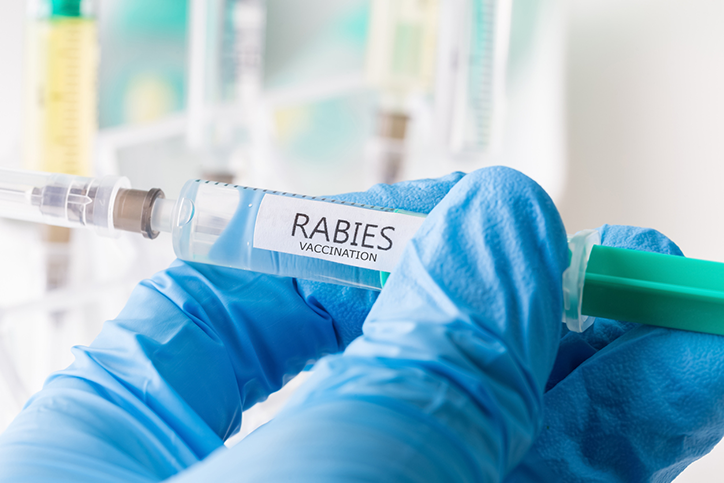Coming into contact with wildlife in Maryland can be exciting but sometimes dangerous. Any mammal—a warm-blooded creature with fur or hair—can carry rabies and pass it to humans. Common mammals include dogs, cats, rabbits, horses, and pigs. There are certain wild mammals that are known to commonly carry rabies, including foxes, raccoons, bats, coyotes, and skunks. Let’s learn more about rabies.
What is rabies?
Rabies is a virus that is passed through the saliva when someone is bitten or scratched by a rabid animal. If you think you have come into contact with a rabid animal, seek treatment right away. Symptoms may not appear for weeks or even months. A rabies infection can be deadly to humans if not treated right away, so do not wait for symptoms to occur.
Symptoms of a rabies infection include:
- irritability
- fever
- headache
- vomiting
More severe symptoms include:
- restlessness
- trouble swallowing
- hallucinations
- confusion
- hydrophobia (fear of water)
- seizures
- death
What should you do if you come into contact with a potentially rabid animal?
First wash any wounds with soap and water. Your next steps depend on the nature of the encounter and the animal involved. If you come into direct contact with an animal, (where it has the potential to scratch or bite you) or if the animal attacks you directly, there is a possibility rabies could be passed to you.
- If your contact is with a wild animal or unfamiliar pet that was not caught, you should contact your health care provider to decide if you need treatment.
- If the wild animal has been caught by animal control or another wildlife professional, it will be tested for the rabies virus to determine if you need treatment.
- If the animal is a pet, it will be confined and observed for 10 days to see if symptoms develop. If symptoms develop in the animal, you will need treatment. If the animal remains symptom-free for the 10 days, you will not need treatment.
Bats are very small animals capable of biting or scratching a person without leaving an obvious mark. It’s possible for someone to be injured by a bat and not realize it, especially if they were asleep. Anyone who comes in contact with a bat or finds a bat in their home should contact their health care provider for treatment advice.
How can the Maryland Poison Center help?
The Maryland Poison Center (MPC) can help assess your situation based on the type of animal and how you were exposed. Depending on your situation, we may recommend you contact your health care provider, or we may send you to your local hospital for evaluation. We may also help you contact the local health department to have your situation evaluated or have an animal observed or tested. The health department tracks and researches rabies and rabid animals in their respective areas.
Marylanders can report a sick or injured wild animal to the Maryland Department of Natural Resources Wildlife Services at 1-877-463-6497.
How is rabies treated?
If you are treated by a health care provider after you come in contact with a rabid animal, the rabies vaccine will stop the virus from infecting you. A health care provider administers one dose of immune globulin (a medicine that helps the body fight infection) and four doses of rabies vaccine over a 14-day period. The vaccine is given in the upper arm, not in the stomach, for most adults. It is best to seek treatment as soon as possible after exposure.
For more information, visit the Center for Disease Control and Prevention (CDC) page on rabies. Remember, the MPC is available 24/7 at 1-800-222-1222.
Amber Ferrell, PharmD
Certified Specialist in Poison Information





Leave a Reply